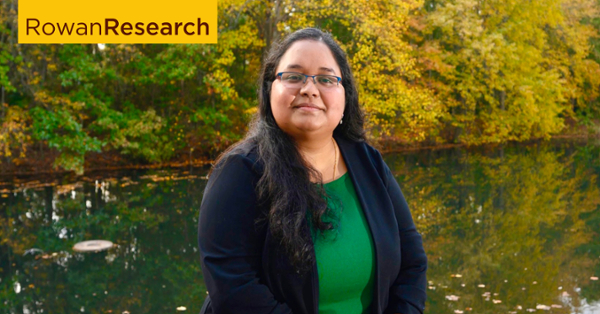Engineer finds eco-friendly solutions before problems arise
Engineer finds eco-friendly solutions before problems arise

Where there are blind spots in environmental sustainability and health care, Kirti Yenkie, Ph.D., helps find solutions. An associate professor in the Department of Chemical Engineering in the Henry M. Rowan College of Engineering, Yenkie applies process systems engineering principles in the areas of environmental sustainability and health care.
Kirti Yenkie, Ph.D.
Chemical engineer
Areas of expertise: Process systems engineering applications to environmental sustainability and health careMore information
Many complex questions in the world of sustainability and health care rely on trial and error. What is the most cost-effective and eco-friendly way to deal with waste? What are the safest chemicals to use in pharmaceutical manufacturing? Using mathematical models, detailed process design, programming, and simulation, Yenkie “realized you can actually forecast things if you use these tools effectively,” she said.
“By using these techniques of mathematical modeling and computer programming, there is a way we can answer some of these challenging problems,” Yenkie said. “My goal is to become one of the experts in this area who can apply these techniques from fundamentals of chemical engineering and process systems to solve these complex problems.”
Yenkie’s work is inherently multidisciplinary. Though chemical engineering is at the heart of her studies, she has become well-versed in computer modeling and programming. Through her research, Yenkie has collaborated with local government and federal agencies, nonprofit organizations and industry leaders.
With funding from the Environmental Protection Agency (EPA), Yenkie and a team of researchers developed a process for reducing waste in petroleum and lube oil industries. She also utilized machine learning and forecasting in the design of wastewater infrastructure. Her research helps industry to proactively manage the conditions of wastewater infrastructure to recommend upgrades rather than waiting for a system failure to occur.
Her most recent project, also funded by the EPA, will use an algorithm to help determine still-unknown properties of novel chemicals to evaluate whether they are safer and more eco-friendly substitutes for commonly used chemicals.
Rowan University researchers are passionate about what they do. Find more at Meet Our Researchers.